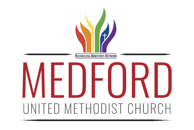
But in the days to come,
the mountain of the Lord’s house
will be the highest of the mountains;
it will be lifted above the hills;
peoples will stream to it.
Many nations will go and say:
“Come, let’s go up to the mountain of the Lord,
to the house of Jacob’s God,
so that he may teach us his ways
and we may walk in God’s paths!”
Instruction will come from Zion
and the Lord’s word from Jerusalem.
God will judge between the nations
and settle disputes of mighty nations,
which are far away.
They will beat their swords into iron plows
and their spears into pruning tools.
Nation will not take up sword against nation;
they will no longer learn how to make war.
All will sit underneath their own grapevines,
under their own fig trees.
There will be no one to terrify them;
for the mouth of the Lord of heavenly forces has spoken.
Each of the peoples walks in the name of their own god;
but as for us, we will walk in the name of the Lord our God
forever and always.
Reflection
This scripture repeats almost verbatim the promises of Isaiah 2:1-4 . Both prophets spoke of peace in times of war. They looked forward to a future where nations would no longer take up swords against each other, but would instead live in peace and prosperity. Planting and harvest was an important symbol of this abundance, because in ancient times, the destruction of crops was a common strategy of war. The loss of a vineyard, olive orchard, or fruit trees was especially painful, since these take years to establish. Yet here is a vision of every family resting in the shade of its own vines and fig trees, not fearing the future.
In Micah’s vision, even the tools of war have been melted down and re-formed into farm implements. That’s bold – literally laying down your weapons. Yet swords can be re-forged quickly if needed. More striking is this statement: “they will no longer learn how to make war.” This is a generational statement: a vision of community where war is seen as so outmoded, so foreign, so unnecessary that no one even teaches it any more. This is even bigger than melting swords, which is powerful but temporary and reversible. Not learning war is a commitment to a permanent cultural shift which requires profound trust in God and in one another. It is a deeper transformation – and a vision that after thousands of years remains sadly unrealized.
For Pondering & Prayer
Peace begins with an attitude of the heart. If you are holding a grudge, resentment, or anger toward someone, will you pray today for God to release you from it?
How are you actively practicing and teaching peace in your home, family and workplace? How can you be a stronger witness for peace?









Comments are closed.